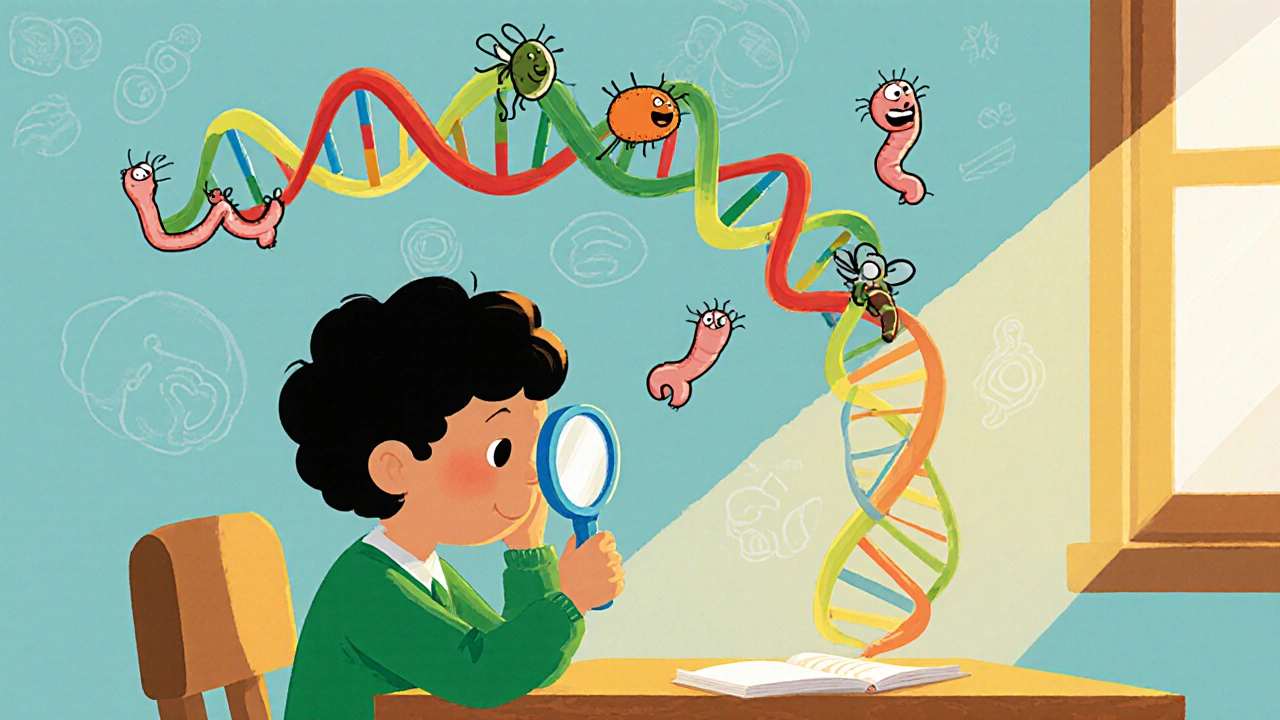Host Genetics: How Your DNA Shapes Medicine
When talking about host genetics, the study of how a person’s own genetic makeup influences the way their body reacts to diseases, drugs, and environmental factors. Also known as human genetic variation, it sits at the core of precision health because it determines everything from drug metabolism to immune response.
Why Host Genetics Matters in Everyday Health
Understanding pharmacogenomics, the intersection of genetics and drug therapy helps clinicians predict which medication will work best for a patient and which one might cause side‑effects. For example, people with certain CYP2C19 variants process clopidogrel slower, reducing its effectiveness in preventing blood clots. This simple genetic clue can mean the difference between a safe treatment and a dangerous bleed.
Another key piece of the puzzle is genetic testing, a laboratory analysis that looks for specific DNA changes linked to health outcomes. Whether you’re ordering a one‑time panel for drug response or a broader genome‑wide scan, the results feed directly into personalized medicine, a care model that tailors prevention, diagnosis, and treatment to each individual's genetic profile. The more you know about your own variants, the more precise the therapy can be.
Host genetics also drives the discovery of biomarkers, measurable indicators such as proteins or DNA fragments that signal disease presence or drug response. In oncology, for instance, the presence of an EGFR mutation is a biomarker that predicts response to tyrosine‑kinase inhibitors. In cardiology, a SLCO1B1 variant acts as a biomarker for statin‑induced muscle pain. These connections illustrate how host genetics, pharmacogenomics, and biomarkers form a feedback loop that continuously refines treatment strategies.
From a practical perspective, incorporating host genetics into care begins with a simple question: “Do I have a genetic factor that makes this drug risky or ineffective?” The answer often lies in a pharmacogenomic panel that tests around 20‑30 common variants. The panel’s report translates raw DNA data into actionable advice—like choosing a lower dose of warfarin if you carry the VKORC1 risk allele, or avoiding codeine if you’re an ultra‑rapid metabolizer of CYP2D6.
Beyond medication, host genetics influences disease susceptibility. People with the APOE ε4 allele face a higher risk of Alzheimer’s, while those with HLA‑B*57:01 are prone to severe reactions from abacavir. Knowing these risks upfront allows for early screening, lifestyle tweaks, or alternative drug choices, effectively turning a genetic disadvantage into a manageable condition.
Technology makes it easier than ever to access this information. Direct‑to‑consumer kits provide raw genotype data, but interpreting that data safely requires clinical insight. Health systems that integrate genetic test results into electronic medical records (EMRs) create decision‑support alerts—like “Check CYP2C9 status before prescribing NSAIDs.” Such integration ensures that host genetics informs every prescribing moment, not just a one‑off test.
Cost remains a concern, yet the price of DNA sequencing has dropped dramatically—from thousands of dollars a decade ago to under $100 today for a comprehensive panel. Many insurers now cover pharmacogenomic testing when it prevents costly adverse drug events, reflecting a shift toward prevention‑first thinking.
Finally, ethical considerations remind us that host genetics data is deeply personal. Informed consent, data privacy, and equitable access are essential to build trust. When patients see clear benefits—like a reduced risk of severe side‑effects—they’re more likely to embrace genetic testing as part of routine care.
All of these angles—drug response, disease risk, biomarkers, testing, and ethical practice—show why host genetics isn’t just a research buzzword but a daily tool for smarter health decisions. Below you’ll find a curated collection of articles that dive into specific drugs, conditions, and practical tips, all tied together by the common thread of how your DNA shapes outcomes.
Genetics and Susceptibility to Parasitic Infections
- Beata Staszkow
- |
- |
- 12
Explore how DNA variations influence who gets infected by parasites, the key genetic markers involved, and what this means for personal health and prevention.
View more
